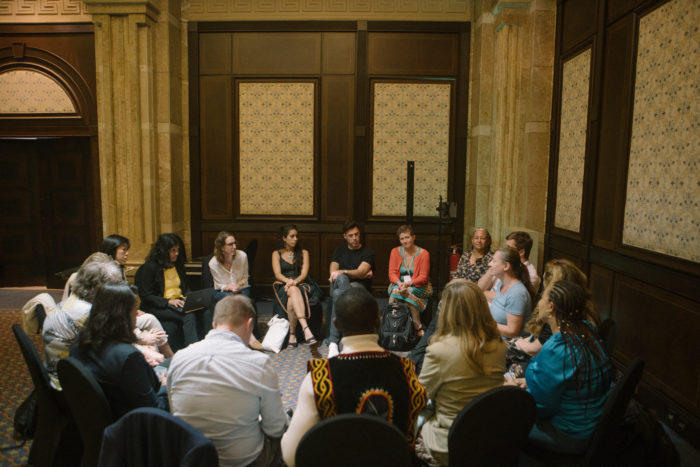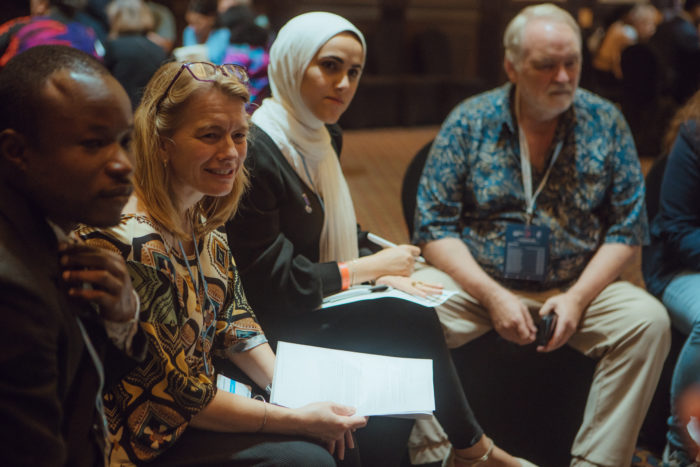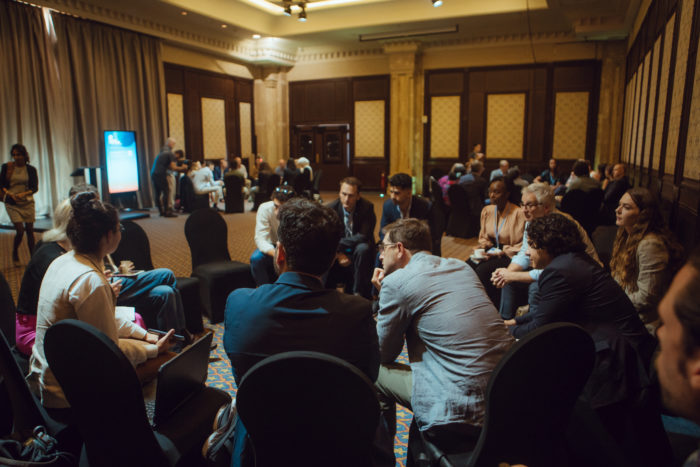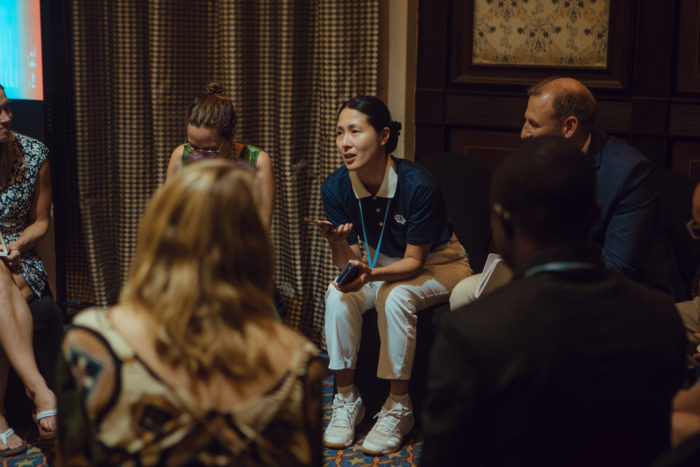ABOUT THE ROUNDTABLE
The Ocean x Climate Roundtable Series: Creating a Common Agenda for our Shared Ocean is designed to foster inclusive dialogue and drive a strong ocean-climate focus on the agenda within the UNFCCC processes, other UN processes and global convenings. This series provides an opportunity for diverse stakeholders to contribute to ocean climate agenda priorities and build a collective vision that influences formal negotiations and dialogue.
The Roundtable series is hosted by Oceanic Global in partnership with IOC UNESCO and The Ocean Decade alongside collaborators at the UNFCCC and UN High-Level Climate Champions.
The series kicked off at the Ocean x Climate Summit hosted as a day-long in-person supporting event at COP27 in Sharm El-Sheikh, Egypt in November 2022 and continued with a virtual session in March 2023 as well as during COP28 in Dubai, UAE in December 2023. Breakout discussion circles covered topics including: UNFCCC Systems, Global Convenings, National Action, Outreach & Engagement, Policy & Finance, Bridging Gaps & Building Capacity, and more.



EDITION 3: COP28 DUBAI
The Ocean x Climate Roundtable dove deep into the vital role of marine and nature-based solutions in climate change mitigation.
The third edition of Oceanic Global’s bi-annual roundtable series in partnership with IOC UNESCO. The discussion continued to bring diverse stakeholder groups together to further advance the ocean-climate agenda.



EDITION 2: VIRTUAL ROUNDTABLE
The second edition of Oceanic Global’s bi-annual roundtable series in partnership with IOC UNESCO was hosted virtually in March 2023. You can watch the full discussion below.
Watch The Latest Virtual Roundtable Highlights:
EDITION 1: COP 27
At COP 27, Oceanic Global kicked off our open-to-the-public round-table series to invite global participation in the ocean x climate dialogue, rather than limiting it to those behind closed doors.
Read the Full Report Here.
HOW TO GET INVOLVED
Join the Movement:
- Contribute your insight to the discussion via this form.
- Use your voice to sign and share The Ocean x Climate Appeal.
- Advocate for the Ocean with The Ocean x Climate Appeal Marketing Toolkit.
- Join a Regional Oceanic Global Hub (Volunteer Chapter) to support grassroots action.
- Donate to support Oceanic Global in driving ocean action.
For more information about the Roundtable event series or to learn more about Oceanic Global, visit oceanic.global or follow Oceanic Global on Instagram @oceanic.global.

